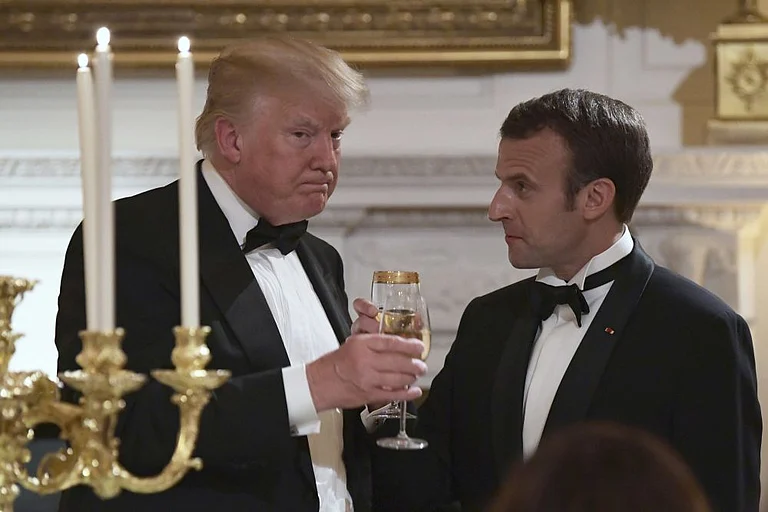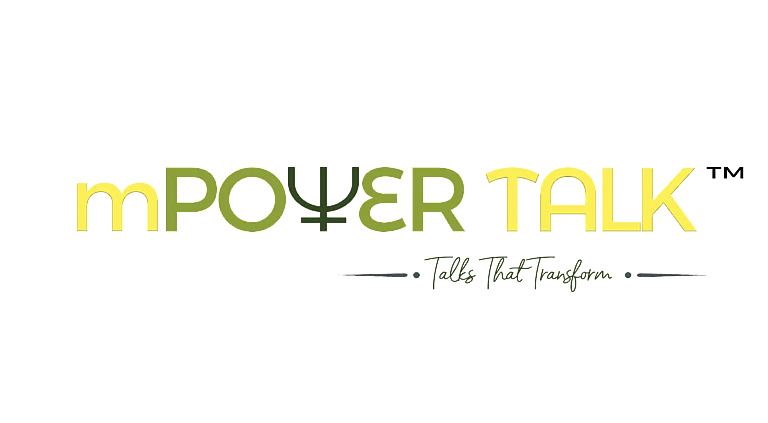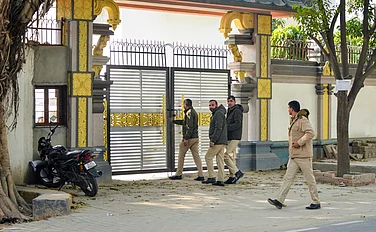India and France have unveiled an ambitious defense industrial roadmap to jointly develop critical military hardware. The announcement came after talks between Prime Minister Narendra Modi and French President Emmanuel Macron in Jaipur. The two leaders also announced a space situational awareness program and the joint production of H125 helicopters by Tata Group and Airbus.
Foreign Secretary Vinay Kwatra highlighted key decisions, including a scheme for the exchange of professionals aged 18 to 35 and the activation of Schengen visas with a five-year validity for Indian postgraduate alumni of French institutions. The leaders signed nine agreements, covering areas such as defense-space partnership, satellite launches, healthcare, and scientific research.
The agreements included the defense industrial roadmap and a deal between Tata and Airbus. Additionally, India's Unified Payment Interface (UPI) was operationalised at the Eiffel Tower. President Macron, the chief guest at Republic Day celebrations, expressed France's intention to attract up to 30,000 Indian students annually to French institutions.
The joint statement emphasised the commitment to deepen integration between defense industrial sectors, identifying opportunities for co-design, co-development, and co-production. The defense roadmap will focus on technology collaboration in air, space, underwater domain awareness, land warfare, robotics, cyber defense, artificial intelligence, and autonomous vehicles.
The pact on defense space partnership aims to facilitate joint work on a space situational awareness program for military satellites and information sharing on space traffic and debris. The year 2026 will be celebrated as the India-France Year of Innovation.
Another significant agreement involves NewSpace India Limited (NSIL) and the French space agency Arianespace co-developing, manufacturing, and launching satellites and payloads, along with researching new launch vehicle technologies.
The leaders discussed ongoing cooperation in the Indian Ocean Region and the Indo-Pacific. Regarding civil-nuclear cooperation, talks are ongoing, with a focus on elements like localisation, financial viability, and cost-effectiveness. Small modular reactors (SMRs) were identified as a new domain for discussion, with positive ongoing conversations.
Both leaders strongly condemned the terrorist attack on Israel, emphasising the need for humanitarian aid in the Gaza region. They called for an immediate and unconditional release of all hostages and reaffirmed support for a two-state solution for Israel and Palestine.
Modi and Macron denounced terrorism in all forms, pledging to stand together against the global menace. They called for concerted action against terrorists, including through designations by the UN Security Council 1267 Sanctions Committee.
The leaders highlighted the importance of upholding international standards on anti-money laundering and combating the financing of terrorism. France expressed support for India's candidacy for membership in the International Energy Agency.
In terms of diplomatic infrastructure, the Indian consulate in Marseille and the French bureau in Hyderabad are now fully operational. Additionally, the decision to set up a solar academy in Senegal under the International Solar Alliance's Star Sea program, launched in 2015, was announced.


























